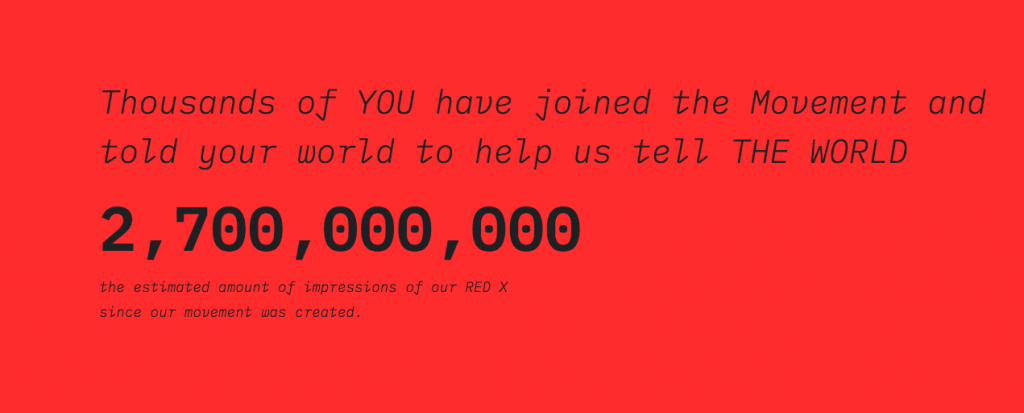If you noticed red X’s on people’s hands Thursday, February 7, that’s probably because they were part of Shine a Light on Slavery Day, when the issue of human trafficking is brought to the public’s awareness.
The campaign is organized by the End It Movement. Through this movement, awareness for human trafficking has spread from the local level to international, with celebrities, pastors, and U.S. representatives taking part in the day.

“The more people who are aware (of human trafficking), the more people can recognize it, the more people who can help end it,” said Jazmine Goodman, the Human Trafficking Victims Advocate for the group Spoken For New Mexico.
There are many international organizations that fight human trafficking. Some of the most well known are A21 and International Justice Mission. The Polaris Project as well as the Department of Homeland Security’s Blue Campaign serve to provide awareness and statistics nationally.
According to the Blue Campaign, “Human trafficking is modern-day slavery and involves the use of force, fraud, or coercion to obtain some type of labor or commercial sex act.”
Human trafficking can happen to anyone, anywhere. Here are statistics on human trafficking:
- There are more people in slavery today than at any other point in history according to the A21 campaign.
- The International Labor Investigation estimates that there are 40.3 million people who are current victims of human trafficking today. Though there is no official estimate in the U.S., the Polaris Project estimates that the number reaches into the hundreds of thousands.
- Human trafficking is the second most profitable form of transnational crime with only drug trafficking ahead of it, according to the Department of Homeland Security.
- Human trafficking is a $150 billion industry worldwide according to the International Labor Investigation. Two thirds of that money comes from sexual exploitation and the rest comes from economic exploitation.
- Human trafficking is one of the most under-reported crimes. In 2018, there were only 5,147 cases reported in the U.S., with 21 of those cases from New Mexico, according to the Human Trafficking Hotline.

Goodman said New Mexico is a prime location for human trafficking because of the Big I, the interstate exchange of I-25 and I-40. Goodman said the intersection makes Albuquerque a hub for traffickers because of the easy access in all four directions.
According to Goodman, traffickers in New Mexico prey off of the vulnerabilities that exist because of the state’s high rates of poverty and domestic violence. Trafficking in the Native American communities of New Mexico is often undetected, Goodman said.
Goodman said that most of the homeless women she has spoken with have participated in “survival sex.” Survival sex is when people trade themselves in sexual acts for the necessities to survive, like food, shelter, and clothing. Though survival sex is not trafficking, it is a pathway to it, according to Goodman.
In New Mexico, the New Mexico Attorney General Human Trafficking Task Force consists of law enforcement agencies, prosecutorial agencies, and service providers. They exist to combat all forms of human trafficking within the state through a victim-centered approach that identifies victims, addresses their personal needs through quality services, and investigates and prosecutes the cases at the local, state, tribal, and federal levels, according to their website.
One organization participating in the task force is Spoken For, an Albuquerque based organization that seeks to end sex trafficking in New Mexico by providing emergency housing for victims… and to also address transitional and long-term housing needs.
Spoken For is a program of the NM Dream Center. The Dream Center has two other programs, Casa Aliento, a Spanish speaking adult program for sex trafficking survivors, and The Harbour, Albuquerque’s first homeless youth drop-in center that provides resources to exploitable homeless youth. This program exists to serve as prevention to the potential trafficking of these youth.
Advocates say awareness of human trafficking may be the first step, but the next step is to actively fight the problem. People wishing to donate to the effort can donate locally to Spoken For here, or to larger organizations like A21 or the International Justice Mission.
Most importantly, if you are a victim of human trafficking or know someone who is, contact the local or national Human Trafficking Hotline.
Bethany Johnson is a reporter for New Mexico News Port. She can be contacted on Twitter @bethanyjson.